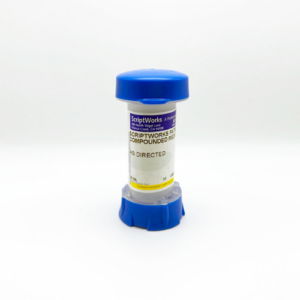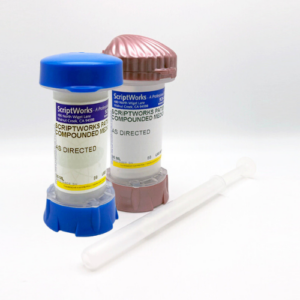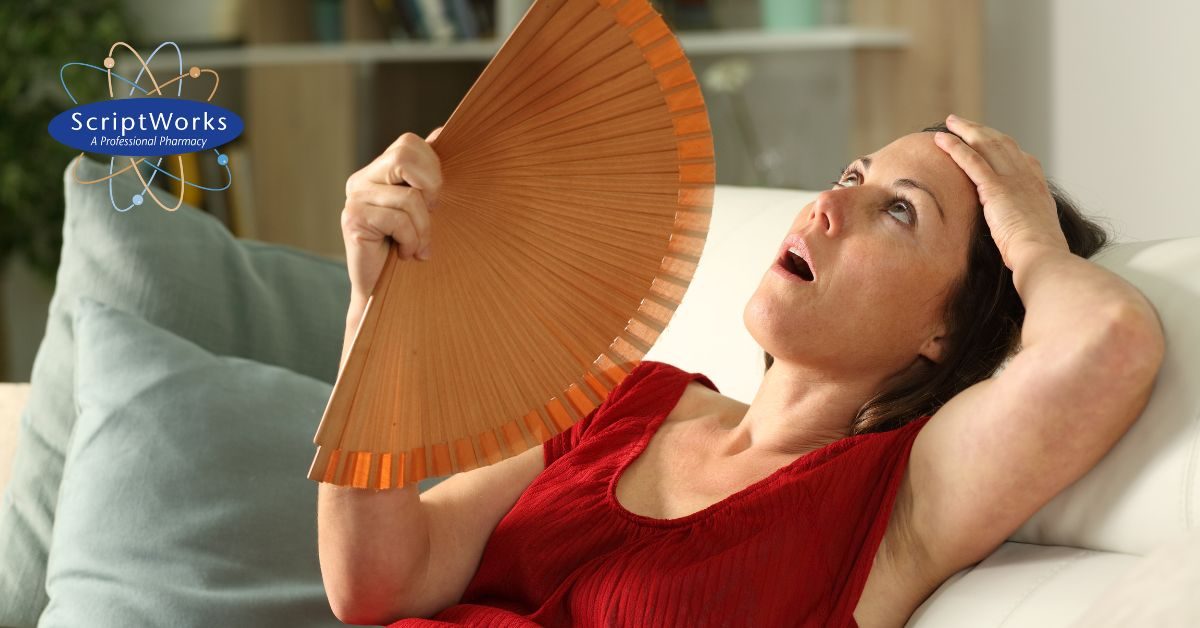
Author: Bob Brensel | President, Pharmacist | ScriptWorks
Bob Brensel, RPh, earned his Pharmacy Degree at University of the Pacific in Stockton, California in 1980. Former California Pharmacists Association’s Award Winner for Recognition of Outstanding Achievement in Compounding Pharmacy. Read More →
When women age and enter menopause, it can be a challenging transition with so many hormonal changes causing undesirable symptoms. Let’s dive into the different problems women are commonly experiencing during menopause, and how to take steps to overcome these obstacles.
Most Common Challenges Related to Menopause:
Hormonal Imbalances and Menopause Involve Very Complex Changes in a Woman's Body
The balance of hormones like estrogen and progesterone can fluctuate significantly, leading to a wide range of physical and emotional symptoms. Since hormones can fluctuate wildly in the 10 years before menopause, it is difficult to pinpoint exactly what changes are causing what symptoms at what time. There are also other hormones that cause symptoms when levels decrease (or increase), such as testosterone, DHEA, cortisol, and thyroid.
Each Woman Experiences and Manages Hormonal Changes and Menopause Differently
Some women breeze through menopause with multiple bothersome symptoms while others may only have several bothersome symptoms for a short period of time. This makes managing menopause challenging for patients and practitioners.

Is This Menopause?
Some women may actually not realize that the way they feel could be the beginning of menopause. They may not recognize or understand the symptoms they are experiencing as related to hormone imbalances or menopause. This could delay them seeking help and prolong misery at times.
Overlapping Symptoms
The symptoms of hormone imbalances and menopause can overlap with other medical conditions. Identifying the root cause of a woman’s symptoms can be challenging for practitioners. It is necessary to take a holistic view of women’s health when managing menopause and hormone imbalances considering factors like lifestyle, diet, exercise, stress management, and mental health. Implementing comprehensive lifestyle changes can be challenging for many individuals.
Changing Guidelines and Varying Medical Opinions on Therapies for Managing Menopause
Medical guidelines for managing menopause and hormone imbalances have changed, and opinions between practitioners vary. Opinions impact what therapies a patient is offered, or not. Many physicians will not offer HRT while others are very proactive about using hormones when levels are low or out of balance. Patients hear mixed messaging and are often left not knowing where to turn or what to do when their symptoms are negatively affecting their quality of life.
Therapies Available for Hormone Imbalances and Menopause Will Not Work Equally Well for All Women
Hormone replacement therapy (HRT), for example, has potential benefits and risks that need to be considered. Other factors such as lifestyle, nutritional supplements, and diet can also affect how a woman feels when hormone depletions or imbalances occur.
Did you know ScriptWorks Pharmacists are specialists in bioidentical hormone replacement therapy (BHRT)?
Stigma and Taboos
While some women who are in their 40s or 50s may have ladies’ nights out that revolve around cocktails and “group complaining” about hot flashes, lack of sex drive, painful intercourse, and weight gain; this is probably not a norm in many cultures. Hormone-related issues, especially those associated with menopause, can carry stigma or be seen as taboo topics in some societies. This can discourage women from discussing their symptoms with others and seeking help.
Psychological and Emotional Factors
Hormone imbalances and menopause can cause significant psychological and emotional effects. Addressing these aspects, such as mood swings and depression, alongside physical symptoms can add complexity to the situation.
We help California women overcome challenges of menopause.
ScriptWorks Pharmacy specializes in BHRT and many other women’s health conditions. We are proud to have served thousands of women throughout California with personalized therapies. Our commitment to quality and patient outcomes, while working alongside practitioners, is why we’ve built a 5-star reputation throughout the state.
Many times, commercially available medications don’t cut it. That’s why many women turn to Bioidentical Hormone Replacement Therapy (BHRT), where compounding pharmacists create custom medications to best target the affected areas and symptoms. ScriptWorks’ pharmacists are BHRT experts, formulating custom creams, gels, troches, capsules, suppositories, and more.
If you’re a California patient- reach out to your medical provider and ask them about BHRT and other compounded medications that may be better suited for your specific needs.
California doctors, PAs, NPs, and more are reaching out to us every day to provide their patients with the best experience. We’re proud to offer exclusive formulations developed by our team of pharmacists, through our RX Order Forms.
Most Common Women's Prescriptions
-

Testosterone Sublingual Mini Script Tabs (Tablets)
Read more -

Bi-Est / Progesterone
Read more -

Progesterone 40mg Sublingual/Buccal Troche
Read more -

Topical Hormone Cream
Read more -

Suppositories for Vaginal Pain
Read more -

Testosterone Cream 2mg/0.1ml vaginal or topical cream/gels
Read more -

Prescription-Grade Nipple Cream (Miconazole 2%/Mupirocin 2%/Betamethasone 0.1%)
Read more -

Bi-Est 50:50 Cream 0.25mg/0.1ml vaginal or topical cream/gels
Read more -

Progesterone Slow Release Capsules
Read more

